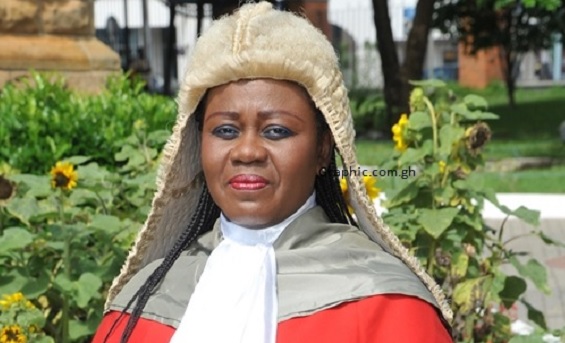
Open letter to the Chief Justice (3)
Chief Justice, I had hoped against all odds, given the sheer magnitude and intractable problems, steeped in the machinery of the Criminal Justice System, to be as brief as possible in my epistle to you, but alas, it is easier said than done.
However, and the forgoing notwithstanding, I shall endeavour to be succinct, and with that, I plunge myself into one of the most disturbing issues and in my opinion, the “elephant in the room” of the criminal justice system: Delays in criminal trials.
William Gladstone, that celebrated jurist of the common law disposition, once said: “Justice delayed is justice denied”.
In a similar vein, Martin Luther King, one of the greatest civil rights advocates of our time postulated that “injustice anywhere is a threat to justice everywhere”.
I hope that my plea to you to expedite policy and institute strategies to, if not completely curtail the spread of this canker, then at the very least, reduce it to the barest minimum.
This is because delays in the justice delivery system have wider implications for the whole set-up and reverberate across the board.
Article 19 (1): Right to trial The right to trial within a reasonable time is at the cornerstone of the global/UN system and underpins all the other fair trial rights.
It is found in the United Nations Declaration on Human Rights (UNDHR), as well as in the International Covenant for Civil and Political Rights (ICCPR), not to mention its prominence in all the regional Human Rights treaties such as the African Charter on people and Human Rights, the European Convention on Human Rights and the American Convention on Human Rights.
Chief Justice, as you are aware, the 1992 Constitution in Article 19(1)… expresses similar sentiments. How then has this hallowed, and in my opinion, sacrosanct human rights been observed more in its breach than in its observance?
Criminal trials are notoriously slow in Ghana and it is about time, something drastic, if not revolutionary, is done about it.
I can count on countless instances where cases I am personally involved in have dragged on ad infinitum.
Cases that immediately come to mind, and these are by no means, the only ones, are The Republic vs William Baah & Others (The Major Mahama lynching at Denkyira Obuasi)― six years and still counting, The Republic vs Ernest Thompson & Others, The Republic vs Opuni, etc.
Chief Justice, not only does delays in criminal trials affect the psychological disposition of victims and accused alike, but it also shakes the foundations of credibility and public confidence in the system.
In practical terms, delays mean that victims must wait longer for cases to be heard.
Some will withdraw support for prosecutions because they have lost faith in the process.
Crucially, witnesses, the livewire and pivots of the trial process, typically and frequently find it extremely difficult in recalling events that occurred many months ago and in some cases, many years ago.
I can say, with all the confidence I can muster, that If anyone challenges me to accurately recount an event where I was an eyewitness just three weeks ago, I daresay I would be found woefully wanting.
The problem becomes gargantuan, (all apologies to my learned friend Martin Alemisi Amidu), if you consider the dire repercussions on people who are convicted as a result of inadvertent but damaging testimonies, largely due to memory failure or fading, you can begin to see the importance of having trials early, when things are fresh within the memory of witnesses.
The scenario becomes even scarier when you consider the fact that some people can be sentenced to death and or given life imprisonment because of such failed memories.
Learn
To prosecute effectively these daily trials of criminal matters, we can learn from other jurisdictions, that have practised and almost perfected this on an administrative level to ensure the smooth running of cases.
Another area, worthy of consideration, is the practice of making courts sit at least three hours on any given day.
I know, I might be courting displeasure among colleagues but I believe we need to take these difficult decisions to showcase our democratic and human rights credentials as the true shining star of Africa.
The writer is a Lawyer.
E-mail:
